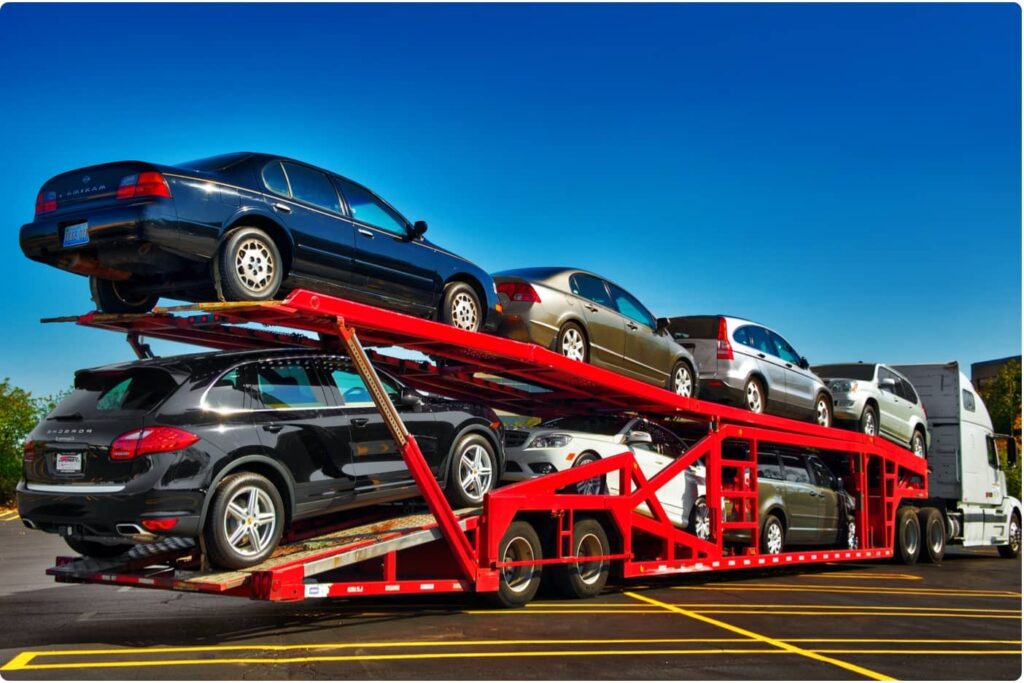Auto Transport Insurance Requirements
Auto transport insurance requirements are essential considerations when shipping a vehicle. Whether you’re moving a car across the country or transporting it for other reasons, ensuring proper insurance coverage is crucial for protecting your valuable asset. While specific requirements may vary depending on the shipping company and the nature of the transport, there are general principles to keep in mind.
Most reputable auto transport companies offer insurance coverage as part of their services. It is important to inquire about the extent of coverage and any limitations or exclusions that may apply. Verify that the insurance covers potential damages, theft, or loss during transit.
Additionally, it is advisable to review your own auto insurance policy to determine if it provides any coverage during the shipping process. Some policies may extend limited coverage, while others may require purchasing additional endorsements or temporary coverage for the duration of the transport.
By understanding the auto transport insurance requirements, you can ensure that your vehicle is adequately protected throughout the shipping journey, giving you peace of mind during the transportation process.
What Is Car Shipping Insurance?

Car shipping insurance is a vital component of the vehicle transportation process, providing protection and peace of mind during transit. It is a type of insurance coverage specifically designed to safeguard your vehicle against potential damages, theft, or loss while it is being transported.
When you engage a reputable car shipping company, they typically offer insurance coverage as part of their services. This coverage is intended to compensate you for any unforeseen damages that may occur during transit. It is important to understand the extent of coverage provided, including any deductibles or limitations.
While car shipping insurance provides essential protection, it’s also crucial to review your existing auto insurance policy. Some policies may extend limited coverage during the transportation process, while others may require additional endorsements or temporary coverage for the duration of the transport.
Before selecting a car shipping company, it’s advisable to carefully review the insurance coverage they provide and compare it with your own insurance policy. This ensures that your vehicle is adequately protected throughout the shipping journey, giving you peace of mind during the transportation process.
Car Shipping Insurance Tips

When shipping your car, having proper insurance coverage is crucial to protect your valuable asset during transit. Here are some essential tips to consider regarding car shipping insurance:
- Understand Coverage: Familiarize yourself with the insurance coverage provided by the car shipping company. Read the policy carefully, paying attention to the extent of coverage, deductibles, and any exclusions or limitations.
- Verify Insurance Details: Confirm that the car shipping company has valid insurance to ship and is properly licensed. Request proof of insurance and verify it with the insurance provider if necessary.
- Personal Auto Insurance: Review your personal auto insurance policy to determine if it provides any coverage during vehicle transportation. Some policies may extend limited coverage, while others may require additional endorsements or temporary coverage for the duration of the transport.
- Document Vehicle Condition: Before shipping, thoroughly inspect your vehicle and document its current condition with photographs. This will serve as evidence in case of any damage claims.
- Communicate with the Shipping Company: Maintain open communication with the car shipping company throughout the process. Inquire about any specific steps or requirements for filing an insurance claim, should the need arise.
- Understand Liability Limits: Determine the liability limits of the car shipping company’s insurance coverage. If necessary, consider purchasing additional coverage to protect against potential gaps.
By following these tips, you can ensure that you have the appropriate car shipping insurance coverage and the necessary documentation to safeguard your vehicle during transit. Remember to thoroughly research the insurance details, communicate with the shipping company, and document the condition of your vehicle before transport.
Why Insurance Coverage Is So Important During Auto Transport

Insurance coverage is of utmost importance during auto transport for several key reasons.
Firstly, transportation involves inherent risks, such as road accidents, theft, or damages caused by unforeseen events. Having insurance coverage provides financial protection and peace of mind in case any such incidents occur during transit.
Secondly, vehicles being transported may have significant financial value, making them valuable targets for theft or vandalism. Adequate insurance coverage ensures that you are protected against potential losses and damages.
Furthermore, auto transport involves various logistical processes, including loading, unloading, and handling of vehicles. Accidents or mishaps can happen during these operations, potentially leading to damages. Insurance coverage safeguards your vehicle against any mishandling or accidents that may occur during the transport process.
Lastly, insurance coverage provides a layer of liability protection. In the rare event that your vehicle causes damage to other vehicles or property during transport, insurance coverage ensures that you are not personally liable for the costs of repairs or compensation.
In conclusion, insurance coverage during auto transport is vital for mitigating risks, protecting against financial losses, and providing a safety net in case of any unforeseen incidents or damages. It is a crucial aspect of a smooth and worry-free auto transport experience.
Specific Auto Transport Insurance Requirements

When it comes to auto transport, specific insurance requirements exist to protect your vehicle during transit. While these requirements can vary depending on the transport company and the type of transport chosen, understanding the key aspects is essential.
Most reputable auto transport companies offer insurance coverage as part of their services. It’s important to verify that the company carries valid insurance and is properly licensed. Request documentation to ensure they meet the necessary requirements.
The insurance coverage should protect your vehicle against damage, theft, or loss during transit. Be sure to review the policy carefully, noting any deductibles, limitations, or exclusions. Understand the extent of coverage provided and whether it aligns with your needs.
In addition to the transport company’s insurance, it’s recommended to review your own auto insurance company. Some policies may offer limited coverage during the transportation process, while others may require additional endorsements or temporary coverage for the duration of the transport.
By understanding the specific insurance requirements and ensuring adequate coverage, you can have peace of mind knowing that your vehicle is protected throughout the auto transport process.
What Types of Auto Insurance Coverage Cover Auto Transport Damage?

When it comes to auto transport, certain types of auto insurance coverage can provide protection against potential damage during transit. Understanding these coverage options is essential for ensuring the adequate protection of your vehicle.
Comprehensive Coverage: Comprehensive insurance typically covers damage to your vehicle caused by non-collision events, including theft, vandalism, natural disasters, and falling objects. If your vehicle sustains damage during transport due to these types of incidents, comprehensive coverage may help cover the repair costs.
Cargo Insurance: Some auto transport companies offer cargo insurance coverage, which specifically covers damage or loss to vehicles being transported. This coverage protects your vehicle against damage caused by accidents, theft, fire, or other covered perils during transit.
Third-Party Liability Coverage: While third-party liability coverage primarily applies to damages caused to others, it may also provide some coverage for damage caused to your vehicle during transport if the responsible party is found liable.
It’s important to review your existing auto insurance policy and consult with your insurance provider to understand the specific coverage options available to you. Consider adding or adjusting your coverage as needed to ensure your vehicle is adequately protected during auto transport.
Average Costs for Auto Transport Insurance

The average cost for auto transport insurance can vary depending on several factors. The specific insurance requirements of the reputable auto transport company, the value of the vehicle being transported, and the desired coverage limits all play a role in determining the cost.
On average, auto transport insurance can range from 0.5% to 1.5% of the vehicle’s declared value. For example, if you are transporting a car valued at $30,000, the auto transport insurance costs could range from $150 to $450.
It’s important to note that these figures are general estimates and can vary based on individual circumstances. Factors such as the distance of transportation, the type of transport (open or enclosed), and additional services or coverage options can impact the insurance cost.
To get a more accurate estimate, it is recommended to obtain quotes from reputable auto transport companies and discuss insurance coverage details with them. This will allow you to understand the specific costs associated with insuring your vehicle during transport and make an informed decision based on your needs and budget.
Choose the Right Auto Transport Insurance

Choosing the right auto transport insurance is crucial to ensure your vehicle is adequately protected during transit. Here are some key factors to consider when selecting insurance coverage:
- Research Reputable Companies: Look for auto transport companies with a solid reputation for providing reliable insurance coverage. Read customer reviews and check their insurance credentials to ensure they meet the necessary requirements.
- Understand Coverage Options: Familiarize yourself with the different coverage options available. This may include comprehensive coverage, cargo insurance, and third-party liability coverage. Evaluate which types of coverage align with your specific needs and provide sufficient protection for your vehicle.
- Coverage Limits and Deductibles: Pay attention to the coverage limits and deductibles associated with the insurance policies. Ensure the coverage limits adequately reflect the value of your vehicle, and that the deductibles are manageable in the event of a claim.
- Additional Coverage Needs: Assess if there are any additional coverage needs specific to your situation. For example, if your vehicle has aftermarket modifications or high-value accessories, consider if additional coverage is necessary to protect these assets.
- Review Your Existing Policy: Review your personal auto insurance policy to determine if it provides any coverage during transportation. This can help you understand any gaps in coverage and make informed decisions about supplemental insurance.
- Obtain Multiple Quotes: Obtain quotes from different auto transport companies, comparing not only the cost but also the coverage and reputation of the insurance provided. This allows you to make a comprehensive assessment before selecting the right coverage for your needs.
By considering these factors, you can choose the right auto transport insurance that provides adequate protection for your vehicle during transit, giving you peace of mind throughout the transportation process.
INSURANCE FOR SHIPPING a CAR OVERSEAS

When shipping a car overseas, obtaining the appropriate insurance coverage is essential to protect your vehicle during transit. Here are some key considerations when it comes to insurance for shipping a car internationally:
- Research Reputable Insurance Providers: Look for insurance providers with experience in international vehicle shipping. Research their reputation, financial stability, and customer reviews to ensure reliability.
- Understand Coverage Options: Familiarize yourself with the coverage options available for international car shipping. This may include comprehensive coverage, marine insurance, or specific policies for vehicle transport overseas. Determine which coverage options align with your needs and provide adequate protection.
- International Regulations and Requirements: Be aware of the specific insurance requirements and regulations of the destination country. Some countries may have specific coverage requirements that need to be met for importing vehicles.
- Documentation and Declarations: Provide accurate information about your vehicle to the insurance provider. Make sure to declare any modifications, aftermarket parts, or high-value accessories to ensure they are adequately covered.
- Coverage Limits and Deductibles: Review the coverage limits and deductibles associated with the insurance policies. Ensure that the coverage limits align with the value of your vehicle and that the deductibles are manageable in the event of a claim.
- Obtain Multiple Quotes: Obtain quotes from different insurance providers, considering both cost and coverage. Compare the terms, conditions, and reputation of the insurers to make an informed decision.
By considering these factors, you can choose the right insurance coverage for shipping your car overseas. Adequate insurance protection ensures your vehicle is safeguarded during international transit, providing peace of mind throughout the shipping process.
FAQs

How Do I Request My Vehicle Insurance?
Requesting your vehicle insurance is a straightforward process that typically involves contacting your insurance provider. Here are the general steps to follow:
- Contact Your Insurance Provider: Reach out to your insurance company via phone, email, or their online portal.
- Provide Required Information: Be ready to provide your policy number, personal details, and any specific information requested by the insurer.
- Specify the Request: Clearly state that you are requesting your vehicle insurance documentation.
- Delivery Method: Confirm whether you prefer to receive the insurance documents via email, mail, or any other preferred method.
- Follow-Up: If necessary, inquire about the expected timeframe for receiving your insurance documents and ask if there are any additional steps required.
Remember to keep a record of your communication with the insurance provider, including any confirmation numbers or reference details. By following these steps, you can easily request your vehicle insurance and ensure you have the necessary documentation for proof of coverage.
Can I Transport a Car Without Insurance?
Transporting a car without insurance is not advisable. While some transportation companies may offer insurance coverage for your vehicle during transit, it’s crucial to have your own insurance as well. Without insurance, you risk potential financial losses if your car is damaged, stolen, or involved in an accident during transportation. Additionally, it may be a requirement by law to have insurance coverage for your vehicle, even during transport. Always consult with your insurance provider to ensure you have the necessary coverage in place before transporting your car, whether it’s through a professional transport service or by other means. Protecting your vehicle with insurance is essential for peace of mind and to mitigate any potential risks.
Is My Vehicle Fully Insured During Car Transport?
The insurance coverage for your vehicle during car transport depends on several factors. Most reputable car transport companies offer insurance coverage as part of their services, but the extent of coverage can vary. It’s important to review the terms and conditions of the insurance policy provided by the transport company to understand the level of protection offered. Additionally, it’s recommended to check with your own auto insurance provider to see if your policy extends coverage during car transport. By understanding the insurance coverage provided by the transport company and your own policy, you can ensure your vehicle is adequately protected during the transport process and have peace of mind knowing you are covered in case of any unforeseen incidents.

